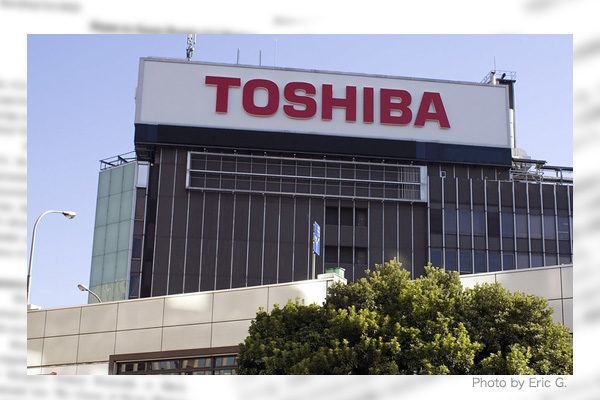An outside investigation report on Toshiba Corp. recently came out, concluding that the company unfairly managed its general shareholders’ meeting last year. As requested by Toshiba, the Japanese Ministry of Economy, Trade and Industry took advantage of the Foreign Exchange and Foreign Trade Control Act to intervene in the management to block proposals from activist shareholders, according to the report by a group of lawyers.
However, we should not be misled by media reports taking the investigation report for granted but view realities calmly.
The investigation was conducted by lawyers selected by activist shareholders. Thus the lawyers cannot be viewed as third parties. The investigation report indicates that investigators only made unilateral speculation based on massive Toshiba e-mail data without checking facts.
Concerns about technology leakage to China
Some critiques say METI is held accountable for details of the incident. METI Minister Hiroshi Kajiyama has flatly denied the ministry’s intervention in Toshiba’s general shareholders’ meeting and noted that it took a due action to secure key businesses and technologies from the viewpoint of the national security. He has offered no more details. From the international viewpoint, it is natural to refrain from explaining details of national security matters. Explaining details of examinations under the Foreign Exchange and Foreign Trade Control Act amounts to showing the government’s security cards. Criticizing the absence of such explanation as opaque amounts to exposing the absence of conventional national security wisdom.
Regarding the Toshiba case, published documents alone can indicate national security concerns. A documented shareholder proposal for last year’s Toshiba general shareholders’ meeting urged that a former outside director of Semiconductor Manufacturing International Corporation, China’s largest contract semiconductor producer subjected to a U.S. export embargo due to national security concerns, be appointed as outside director of Toshiba.
It may be strange if METI does not check concerns about technology leakage. It was natural for METI to seek information from Toshiba about the background of activist shareholders and details of the outsider director appointment. The revised Foreign Exchange and Foreign Trade Act authorizes the government to examine whether there are concerns about the maintenance of production bases and technologies because of the appointment of directors after the acceptance of investment from foreigners at companies in key industries relating to the national security. The government can also collect relevant information from concerned parties. These government actions do not amount to any unjust intervention or pressure.
National security should be given priority over activist shareholders’ rights
Toshiba has ever been plagued with accounting fraud and other compliance-related scandals, apparently inviting activist shareholders to pay attention to vulnerable corporate governance.
But national security matters should be clearly separated from corporate governance matters. It is natural to give priority to national security over activist shareholders’ rights. METI’ purpose is to protect Toshiba from the partial sale of production bases or technology leakage. The ministry has never attempted to protect the Toshiba management team. While Toshiba should conduct its own investigation and fulfill its accountability as a matter of governance, METI should take national security actions steadily without making a fuss.
Masahiko Hosokawa is a professor at Meisei University and a former director-general of the Trade Control Department at Japan’s Ministry of Economy, Trade and Industry. He is also a Planning Committee member at the Japan Institute for National Fundamentals.


